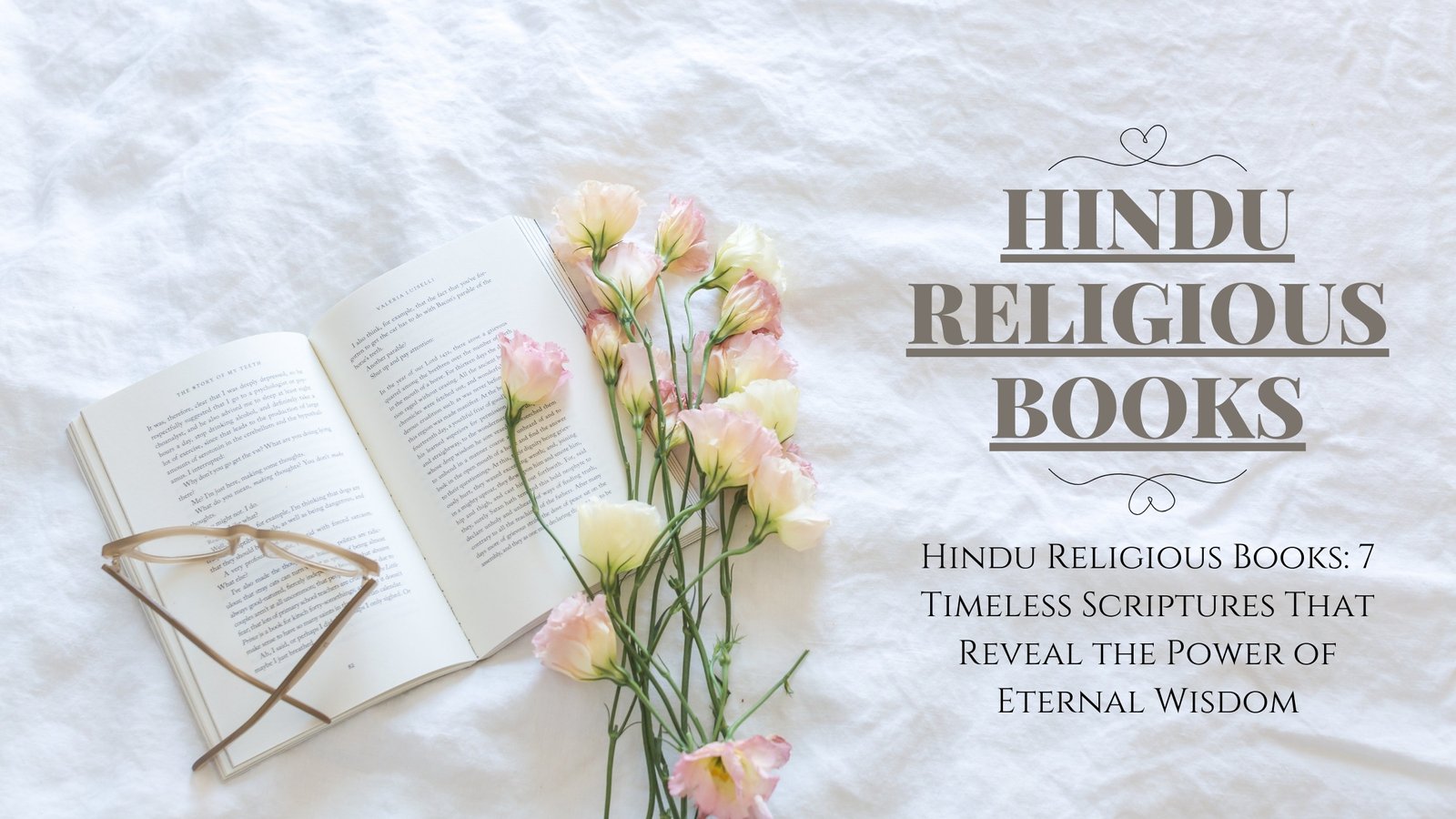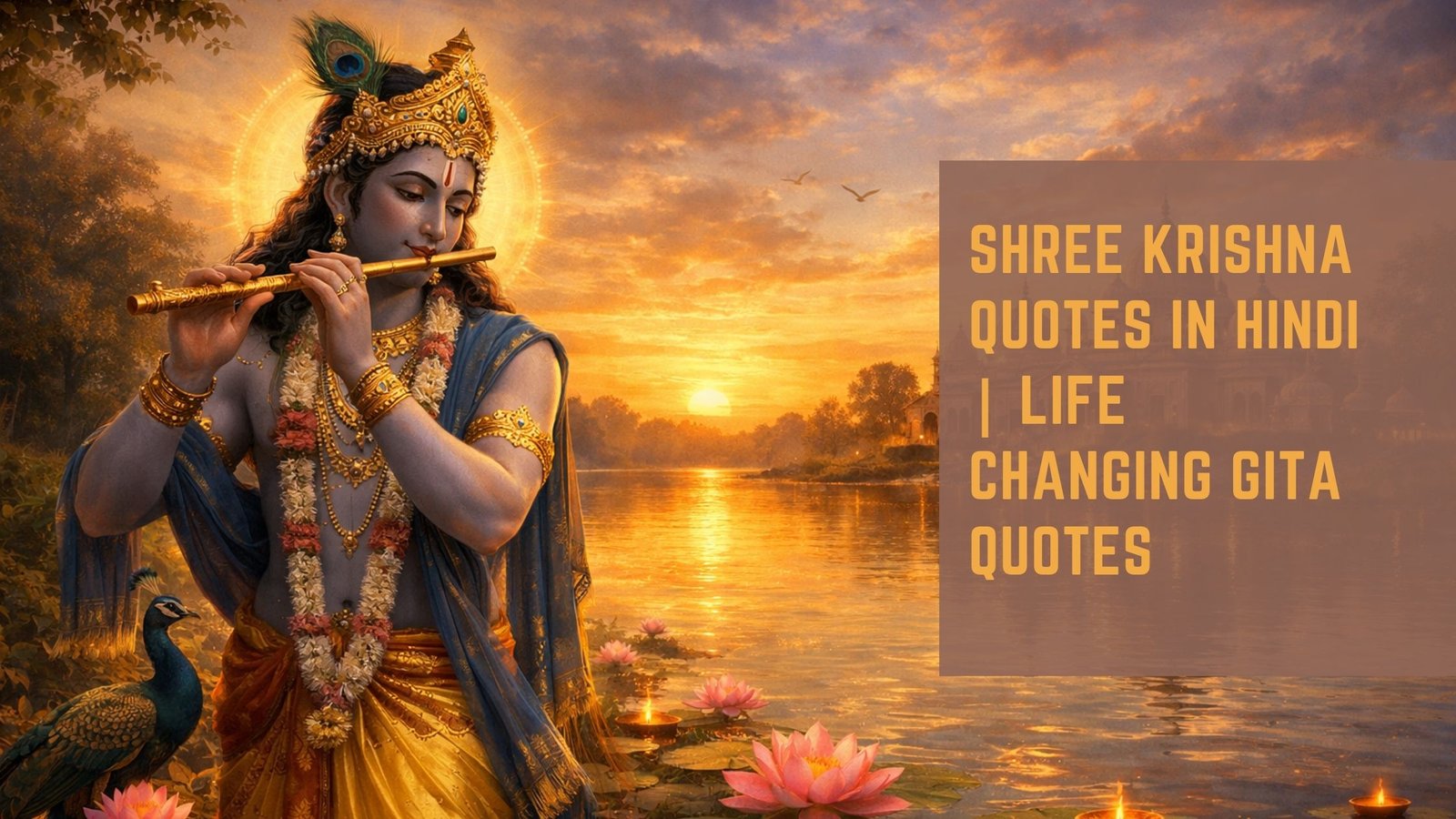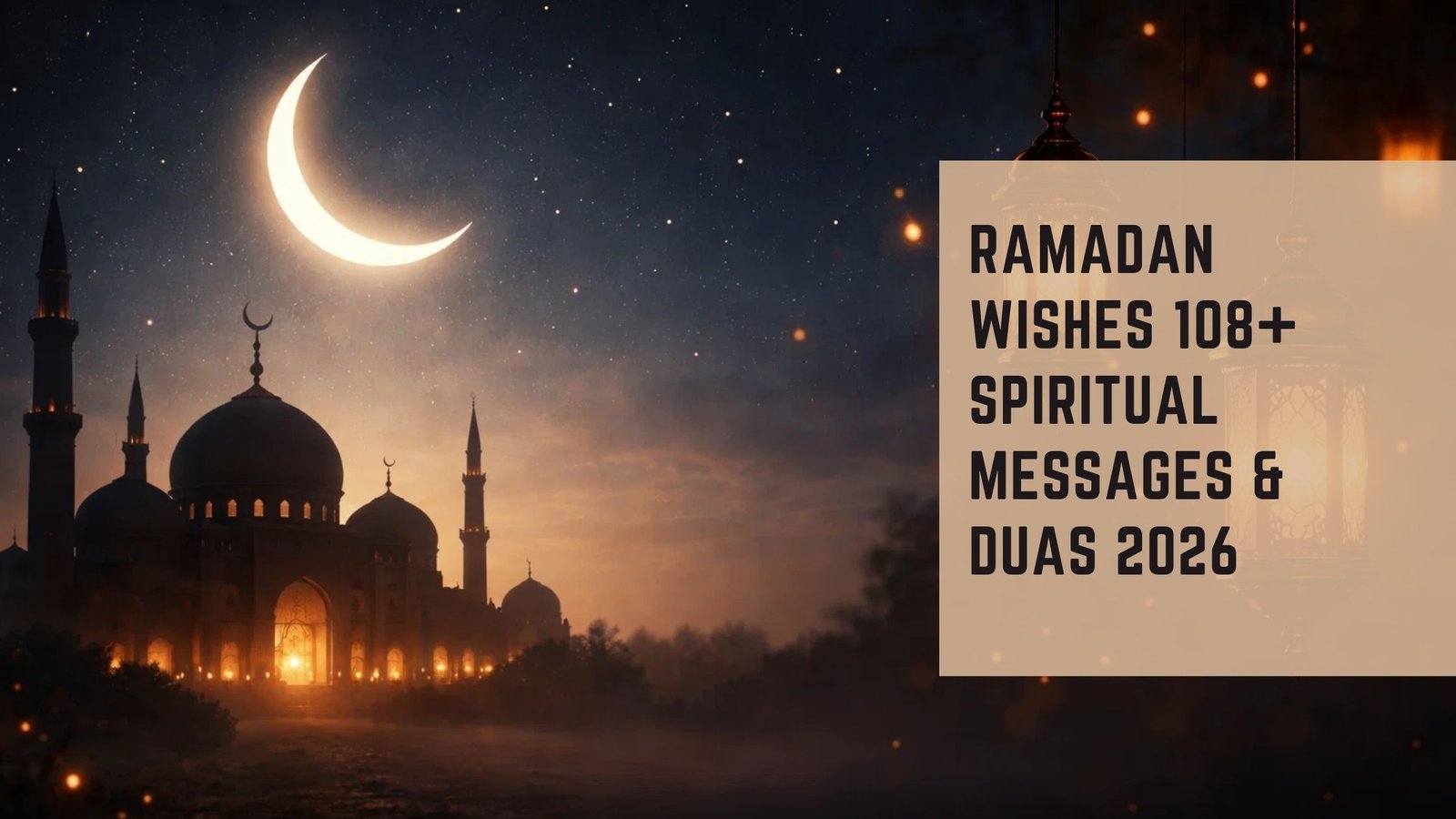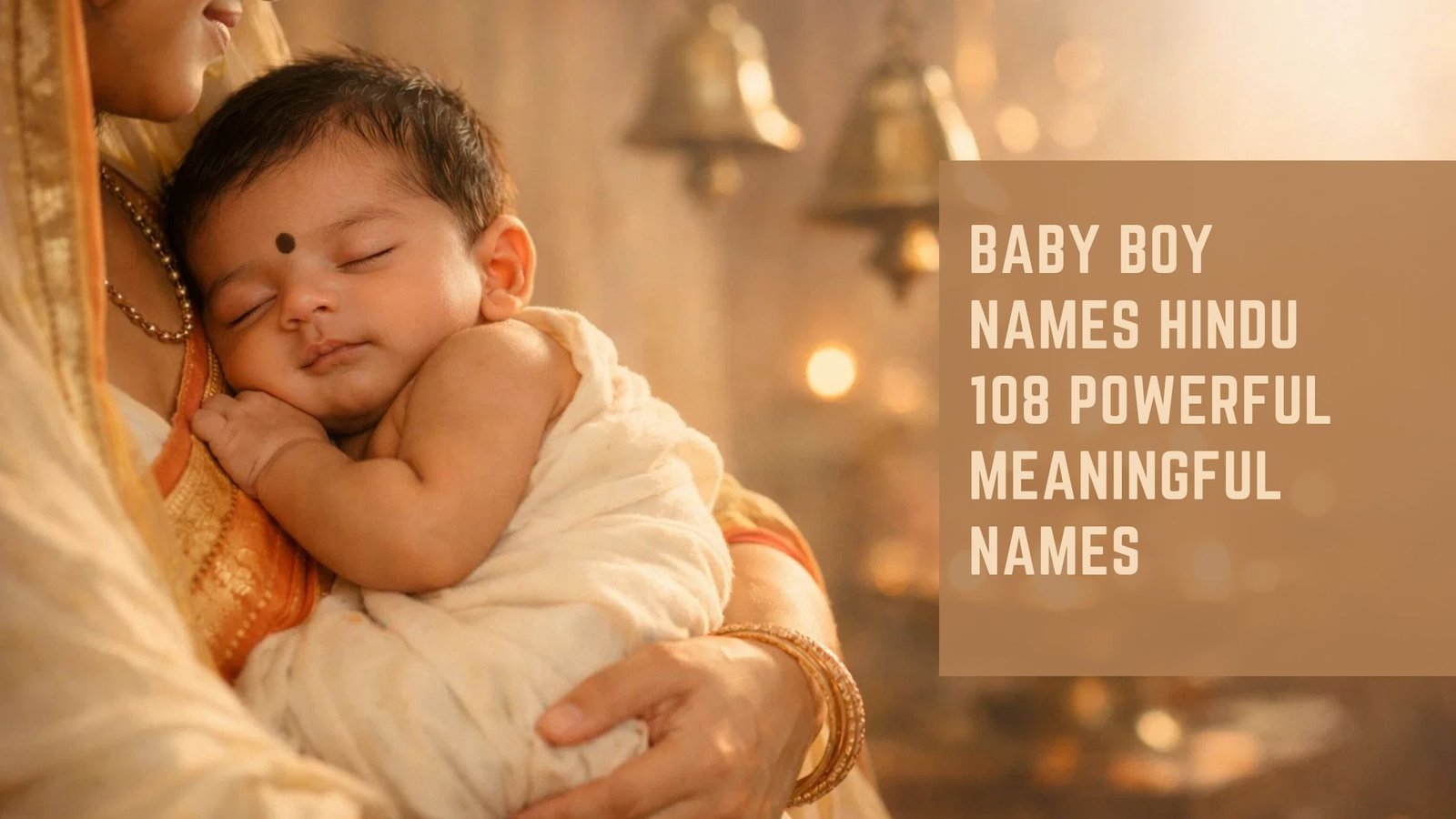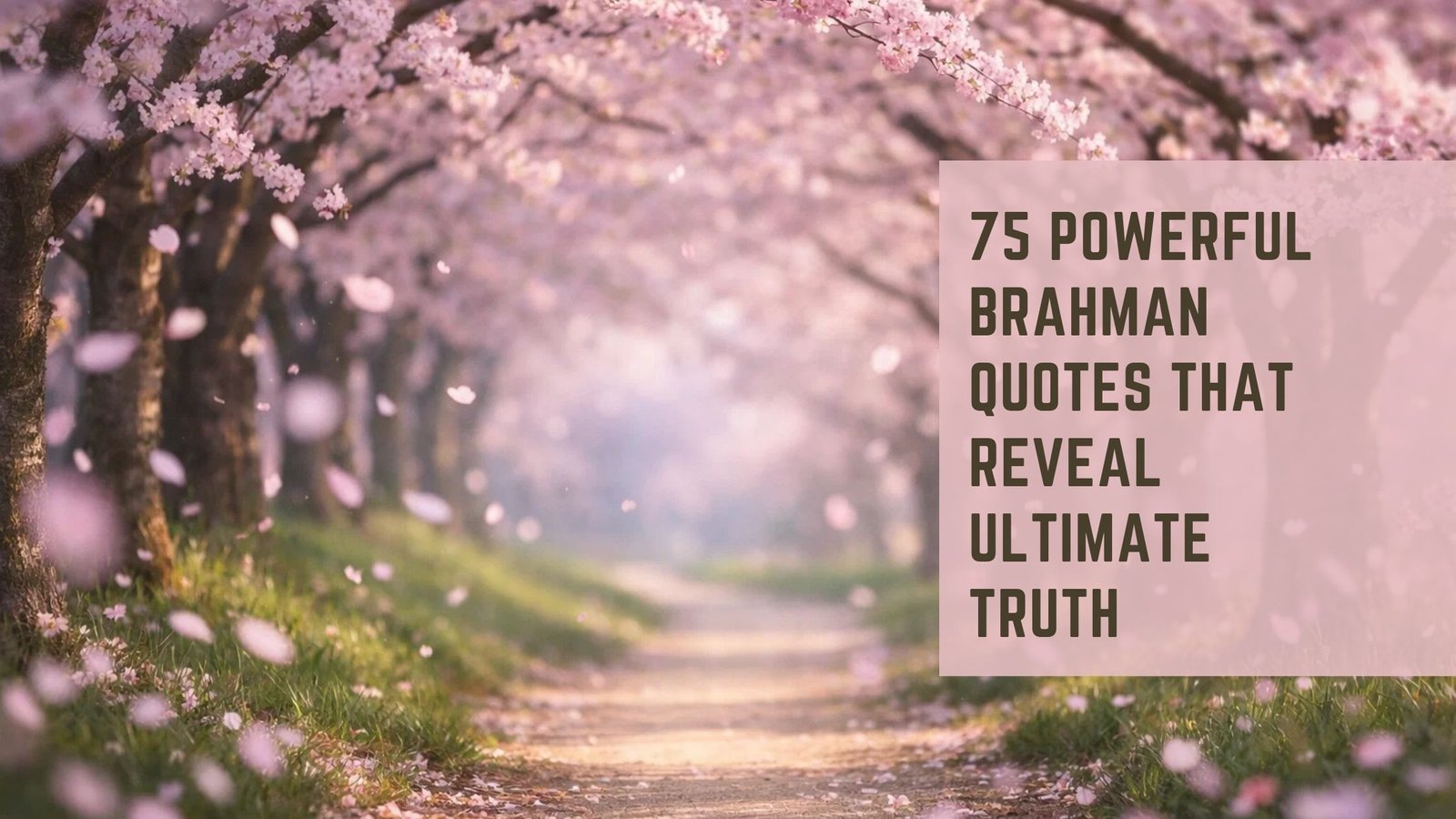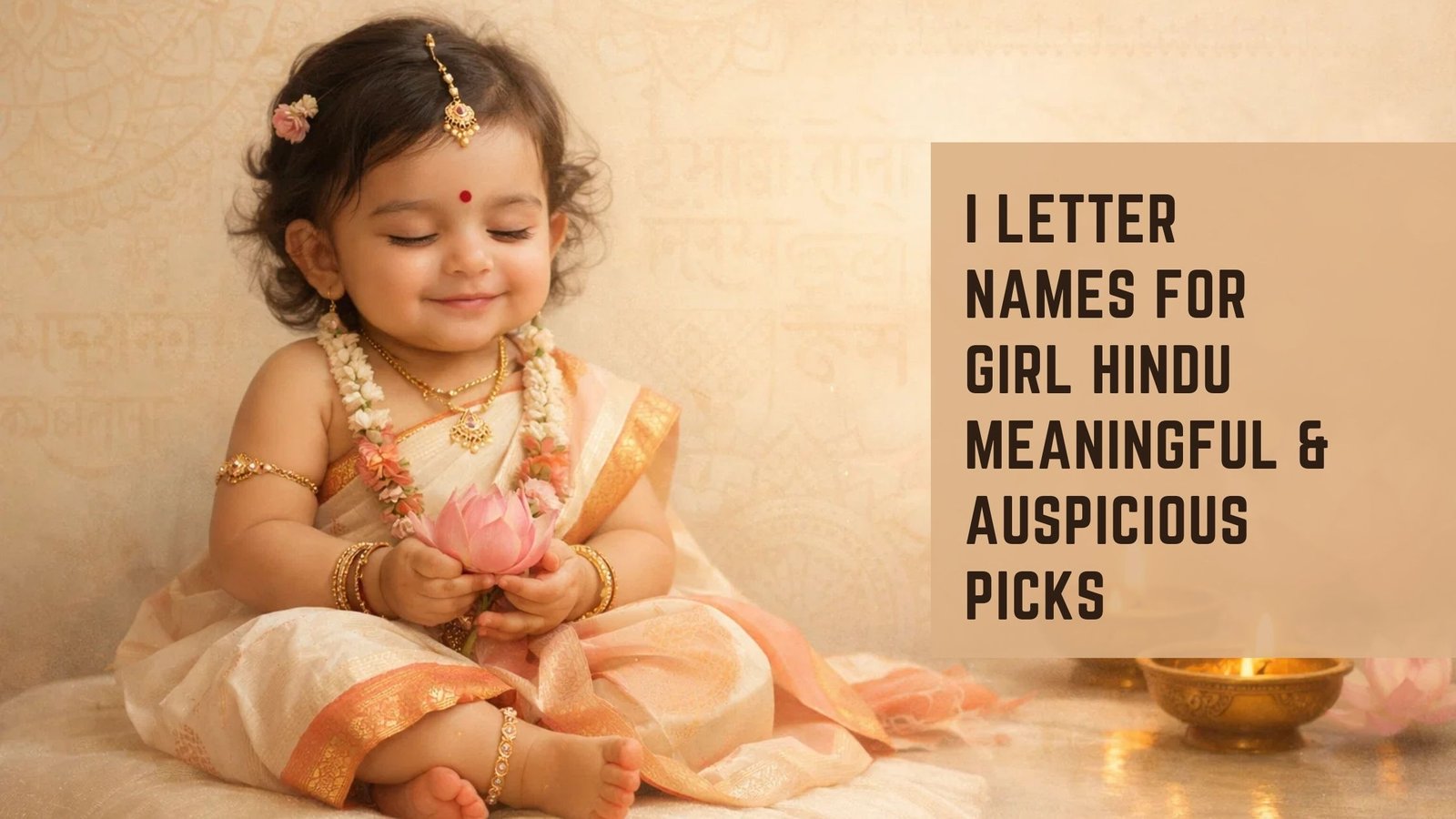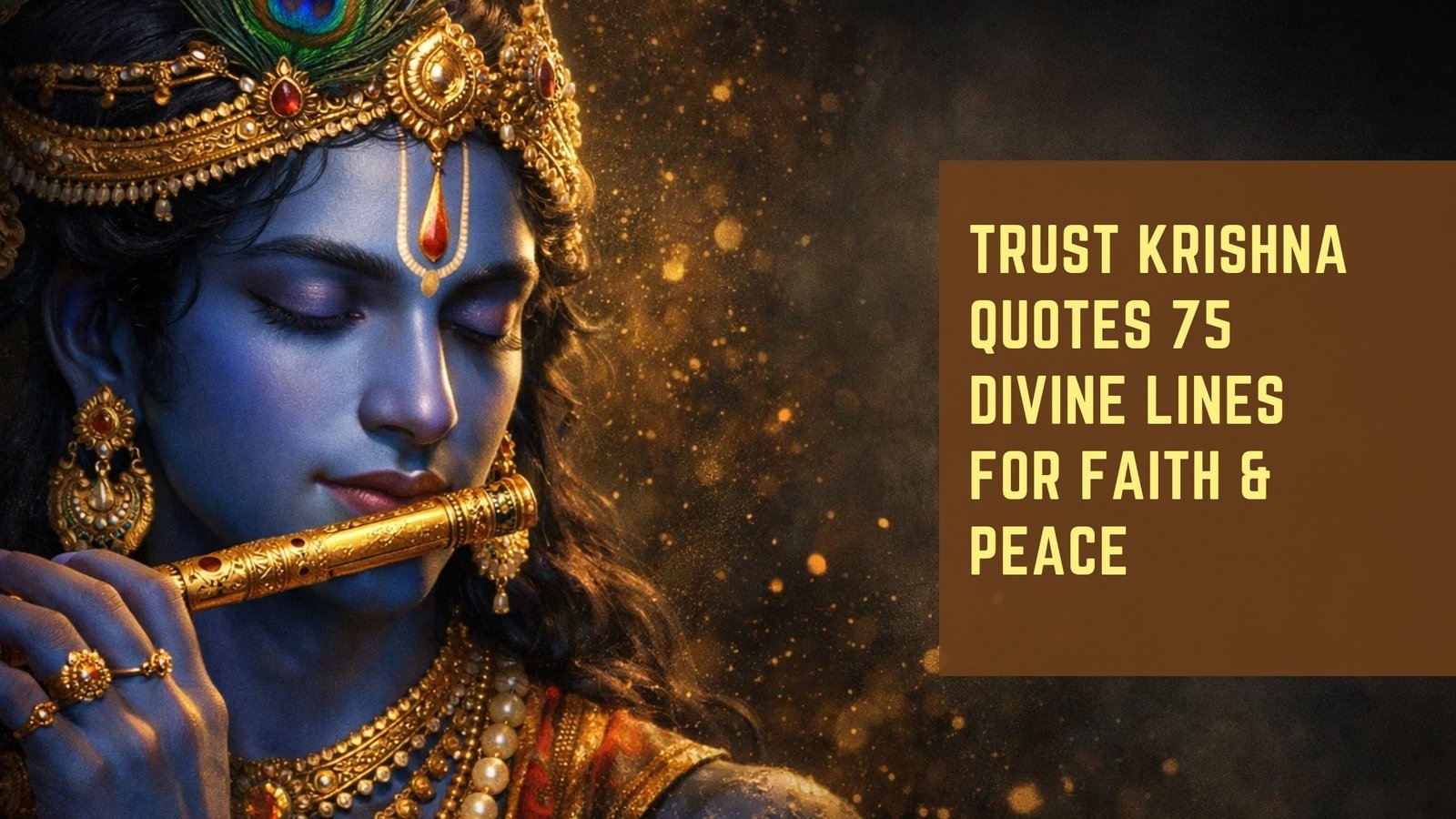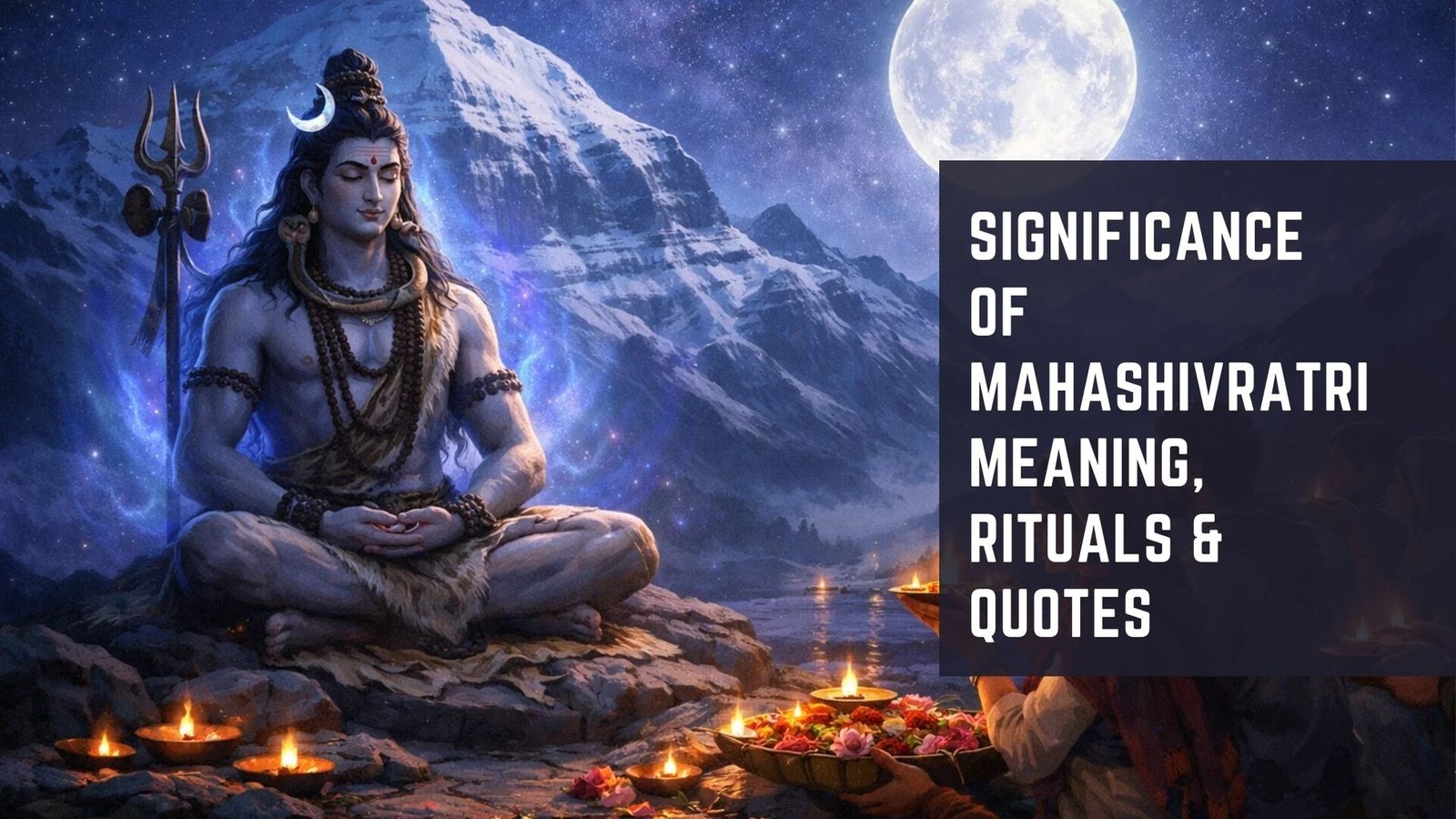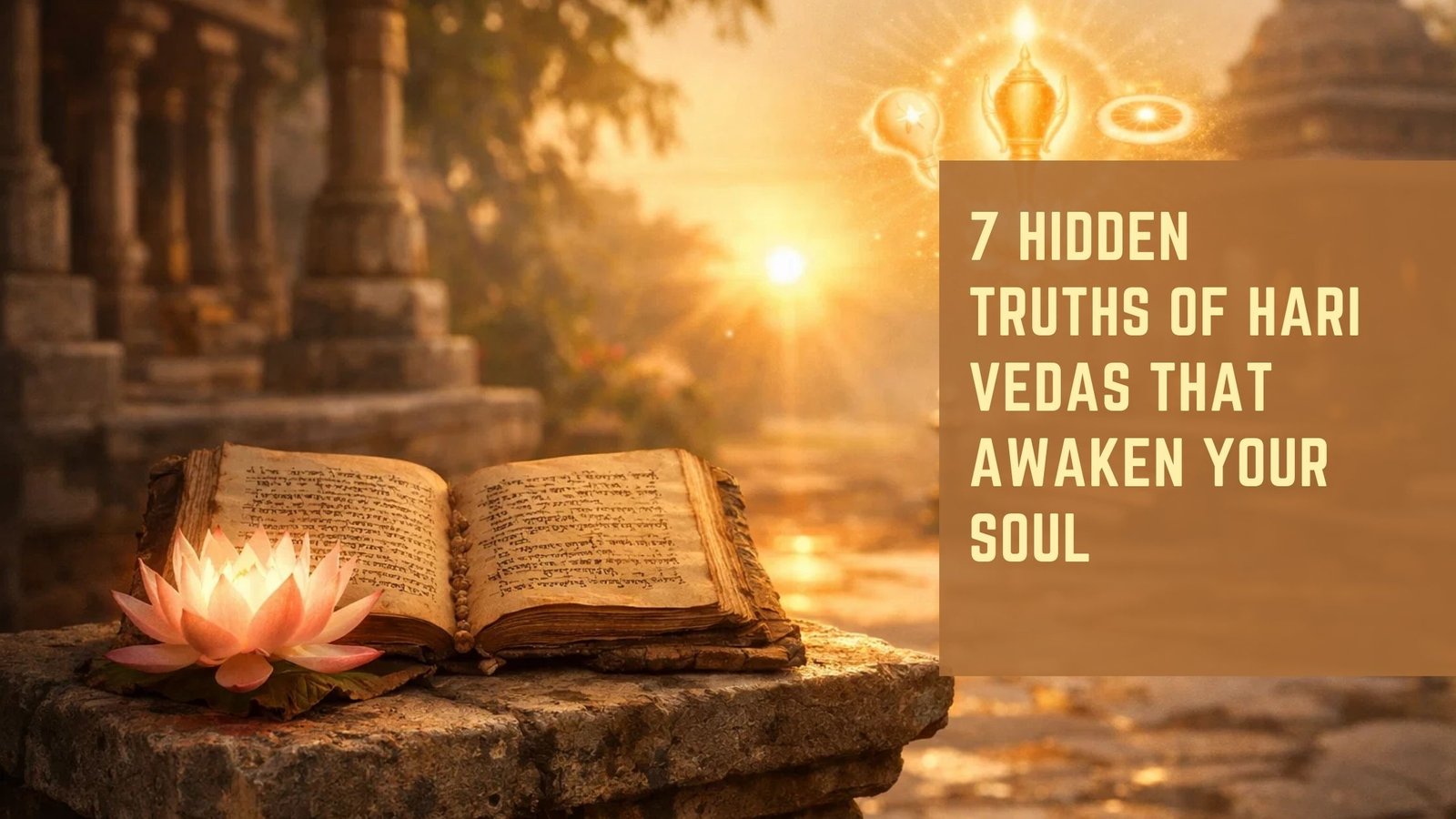Hinduism, the world’s oldest living religion, is deeply rooted in sacred scriptures known collectively as Hindu religious books. These ancient texts not only guide spiritual practice but also offer insights into ethics, philosophy, and the human experience. In this article, discover seven of the most revered Hindu religious books that have shaped civilization and continue to illuminate lives today.

📖 What Are Hindu Religious Books?
Hindu religious books are sacred texts that form the spiritual and philosophical foundation of Hinduism. They are divided into two main categories:
- Shruti (heard) – Divine revelations (e.g., Vedas, Upanishads)
- Smriti (remembered) – Human-authored texts (e.g., Bhagavad Gita, Ramayana, Puranas)
These scriptures include hymns, stories, philosophies, and instructions for ethical living.
7 Most Important Hindu Religious Books
1. The Vedas – The Root of All Knowledge
The Vedas are the most ancient and foundational Hindu religious books. They are divided into four main collections:
| Veda | Focus Area | Notable Feature |
|---|---|---|
| Rigveda | Hymns to deities | Oldest known Sanskrit text |
| Samaveda | Musical chants for rituals | Basis for Indian classical music |
| Yajurveda | Sacrificial formulas | Ritual performance and mantras |
| Atharvaveda | Daily life, health, and magic | Philosophical and practical insights |
The Vedas are eternal truths believed to be revealed by the Divine to sages (Rishis).
2. The Upanishads – Spiritual Enlightenment
The Upanishads, often called Vedanta, form the philosophical core of the Vedas.
Core Teachings:
- Brahman: The ultimate, formless reality.
- Atman: The soul, identical to Brahman.
- Moksha: Liberation from the cycle of rebirth.
Famous Quote:
🕉️ “Tat Tvam Asi” – That Thou Art
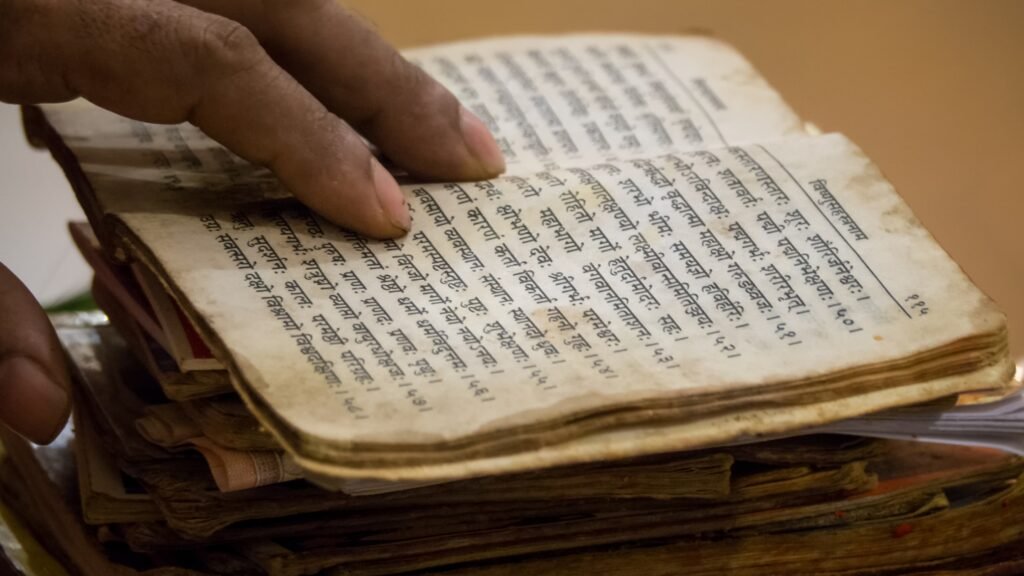
3. Bhagavad Gita – The Song of the Divine
Part of the Mahabharata, the Bhagavad Gita is a dialogue between Lord Krishna and Arjuna.
Why It’s Powerful:
- Offers a complete life philosophy.
- Discusses Dharma (duty), Bhakti (devotion), and Karma (action).
Key Verse:
“You have the right to work, but not to the fruits thereof.”
– Bhagavad Gita 2.47
The Gita answers the timeless question: How should one live a righteous life?
4. Ramayana – The Ideal Life
Written by Maharishi Valmiki, the Ramayana is the story of Lord Rama’s journey, portraying the ideal man, woman, brother, and ruler.
Lessons Taught:
- Righteousness over power.
- Devotion and duty toward family and society.
- The triumph of good over evil.
Characters Representing Ideals:
- Rama: Virtue and Dharma
- Sita: Loyalty and purity
- Lakshman: Devotion
- Hanuman: Faith and strength
5. Mahabharata – The Epic of Life’s Complexity
Authored by Vyasa, the Mahabharata is the world’s longest epic. It reflects every human emotion and dilemma.
Highlights:
- Contains the Bhagavad Gita.
- Features profound moral and ethical dilemmas.
- Offers teachings on statecraft, war, peace, and spirituality.
6. The Puranas – Mythology with Meaning
The Puranas are a vast collection of stories about deities, the universe, and ancient legends.
Popular Puranas:
- Bhagavata Purana – Devotion to Lord Krishna.
- Shiva Purana – Glories of Lord Shiva.
- Vishnu Purana – Narratives on Lord Vishnu’s incarnations.
These stories blend myth with wisdom, making spirituality accessible to all.
7. Smritis – Codes of Dharma
Smritis like Manusmriti provide practical guidelines for ethical and social conduct.
Core Concepts:
- Duties according to one’s stage of life (Ashrama)
- Responsibilities based on social roles (Varna)
- Justice, punishment, and personal morality
While ancient, Smritis are subject to interpretation and reform over time.

🌟 Key Features of Hindu Religious Books
📌 What Makes Hindu Religious Books Unique?
- 📖 Written in Sanskrit, one of the oldest languages.
- 🔁 Emphasize Karma and Rebirth.
- 🌈 Celebrate diversity of paths—devotion (Bhakti), knowledge (Jnana), and action (Karma).
- 🕉️ Promote unity in diversity – many gods, one ultimate truth.
📋 Summary Table: Overview of Hindu Religious Books
| Scripture | Category | Focus | Author |
|---|---|---|---|
| Vedas | Shruti | Rituals, hymns, spiritual truths | Divine origin |
| Upanishads | Shruti | Spiritual philosophy | Sages |
| Bhagavad Gita | Smriti | Duty, devotion, detachment | Vyasa |
| Ramayana | Smriti | Dharma, ideal living | Valmiki |
| Mahabharata | Smriti | Life, war, righteousness | Vyasa |
| Puranas | Smriti | Devotional stories, mythology | Various sages |
| Manusmriti | Smriti | Social and moral laws | Sage Manu |
❓ FAQ – People Also Ask
What is the most important book in Hinduism?
The Bhagavad Gita is often considered the most important due to its practical philosophy and universal appeal.
Are Hindu religious books still relevant today?
Yes, they offer timeless wisdom applicable to modern dilemmas, guiding ethical living and spiritual growth.
What language are Hindu scriptures written in?
Most are written in Sanskrit, with many translations available in regional and global languages.
Do all Hindus follow the same religious texts?
No. Different sects emphasize different scriptures, but all consider the Vedas authoritative.
How are the Vedas different from the Puranas?
The Vedas are philosophical and ritual-based, while the Puranas are story-based and devotional.
🔍 Related Insights – People Also Search For
- Difference between Shruti and Smriti
- Hindu mythology stories
- Importance of Bhagavad Gita in daily life
- Dharma and Karma explained
- What is Moksha in Hinduism?
✅ Conclusion: Living Wisdom That Never Ages
Hindu religious books are more than ancient texts; they are living guides to a life of purpose, virtue, and spiritual evolution. Their universal truths transcend time, caste, and creed, making them relevant across generations.
Whether you’re a seeker, a scholar, or a curious soul, these timeless scriptures offer an invitation to explore the divine within and around you.
👉 Ready to dive deeper into the wisdom of Hinduism?
Visit thegita.in for authentic insights, spiritual articles, and in-depth knowledge on the Gita and other sacred scriptures.
Let your journey to self-realization begin today. 🕉️
👉 If you found this insightful, share your thoughts or favorite scripture in the comments! Let’s keep the spiritual conversation alive.
